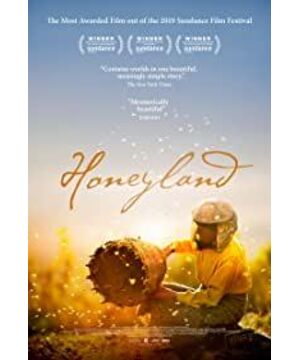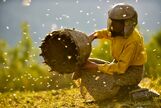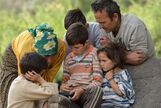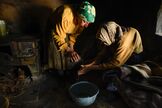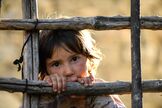What treatments in this film broke your perception of documentaries?
Where is the line between documentaries and feature films?
Last year at the BFI in London, I watched the last "Best Picture" with my classmates. It was this one:
Synopsis:
Sprinkling chicken blood everywhere, the wizard performed sacrifices to dispel the fear of the Nigerian girl, so that she could go abroad to earn money to support her family. After arriving in Austria, she discovered that the so-called work turned out to be prostitution. Under the coercion and control of the bustard, the girl was led by fellow village veteran Joy to pick up customers from Qijie. Although Joy sympathizes and cares, he also hides his selfishness. He hopes to pay off his debts as soon as possible and get rid of the devil's clutches and regain his freedom and reunite with his beloved daughter.
The Iranian-American female director Motza started from a female perspective, referring to the personal experience of some non-professional actors, and ironically using the character names. The fictional portrayal of the plot is cruel and shocking.
At the time, I had no idea about documentaries, but after watching the movie with the expectation of a drama, I felt very... bland and not like a drama.
Looking back now, the film left me with an impression more like a documentary. There is no soundtrack, no tight plot, no positive and negative dialogue, no large emotional performances by actors, and handheld photography.
More like a documentary, all the actors in the film are non-professional actors, and the director finds them to interpret the real story that happened to them. ——>Isn’t this a reenactment of the scene in the documentary?
However, the positioning of this film is "plot", while the positioning of "Land of Honey" is "plot" and "documentary".
"The Land of Honey" is completely absent from the director's participation, which is reflected in the film: the director did not issue any questions, no narration, and no meaningful interviews— > So on the first point, this is not a typical 's documentary.
Is it true follow-up to make "Land of Honey" a documentary? But now (at least from what I've heard) we can "represent" as long as what actually happened to the subject —> what's the difference between that and a drama?
Are dramas more directorial? I don't think it's necessarily true, after all, many documentary directors are also very colorful.
In this age of machinism, the concepts of documentaries and feature films are increasingly blurred.
Anyway, my previous understanding of the documentary is like this. After watching this film, I have not changed much: the documentary focuses on "people", and highlights the complex thinking on the multi-faceted nature of human nature and society; although the theme may come first, but The theme may be revised or changed during the contact; the drama is mainly based on the "theme", the development of the plot in the middle is completely controllable, and the ups and downs finally reach a predetermined ending.
I don’t think dramas are fiction, but documentaries are real: now, dramas “based on real people’s stories” are gradually becoming a trend; the directorial colors of documentaries may also distort the reality of the characters. Even in the pursuit of "storytelling," both documentaries and feature films are aligned. I believe that a good feature film has documentary significance and social reflection; I also believe that a good documentary follows the logic of picture and storytelling.
(Documentaries in the text do not include series)
ps:
- The interior lighting in this movie is really beautiful...! like oil painting...
- I think the poetry of life and nature shown in this film is much better than "The Shaky World" (.
- Rescue the bees, fight bees, bees drinking water, and several other scenes make me feel that the director is using montage to express a metaphor.
- This film feels that the lens is very logical (then I checked it, maybe because the editor does not understand the language, so I can only use the lens logic to edit first...tql)
View more about Honeyland reviews


